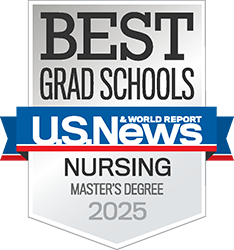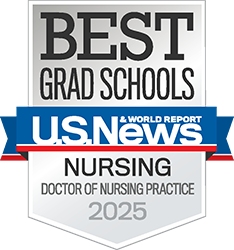Beauchamp secures grant for stroke education initiative in El Salvador

Jennifer E.S. Beauchamp, PhD, RN, FAAN, has been awarded a $10,000 2024 Global Health Educational Innovations and Research Grant for the proposal, “Let’s Talk About Stroke.”
This grant will support the development and evaluation of an online global health course in Spanish aimed at health care providers and students in El Salvador. The project, in collaboration with Universidad Dr. José Matías Delgado, is designed to address critical gaps in stroke education in Spanish-speaking countries and aims to reduce disparities in stroke outcomes.
The proposal was highly praised by the grant reviewers, who noted that “the study has the potential to address a global health problem in the Americas in a significant way.” The reviewers were also impressed with the feasibility and sustainability of the project, recognizing it as a vital step forward in improving stroke recognition and response in El Salvador, where stroke remains the leading cause of death and disability.
This study builds on the momentum created by the American Heart Association’s 2023 adoption of the acronym RÁPIDO, a Spanish-language version of the widely recognized stroke warning acronym FAST (Face drooping, Arm weakness, Speech difficulty, Time to call 911). RÁPIDO (Rostro caído, Alteración del equilibrio, Pérdida de fuerza en un brazo o una pierna, Impedimiento visual repentino, Dificultad para hablar, Obten ayuda-Llama al 911) was developed by Beauchamp and her team and has been instrumental in raising awareness about stroke symptoms among Spanish-speaking communities.
Beauchamp’s new project aims to further this progress by developing an educational course tailored to the needs of health care professionals and students in El Salvador. Ruth Yanes-Bengoa, IMG, who will serve as the research coordinator and liaison for the project, helped secure the grant and established the collaboration with Universidad Dr. José Matías Delgado.
Though stroke is a critical public health issue in El Salvador, there remains a significant gap in stroke education and awareness among health care providers and students. By offering an online course in Spanish, Beauchamp and her team hope to empower local health care professionals with the knowledge and tools they need to recognize and respond to stroke symptoms more effectively.
The project also seeks to contribute to global efforts in reducing stroke-related disparities by providing accessible and culturally relevant education.
Diamond Smith



